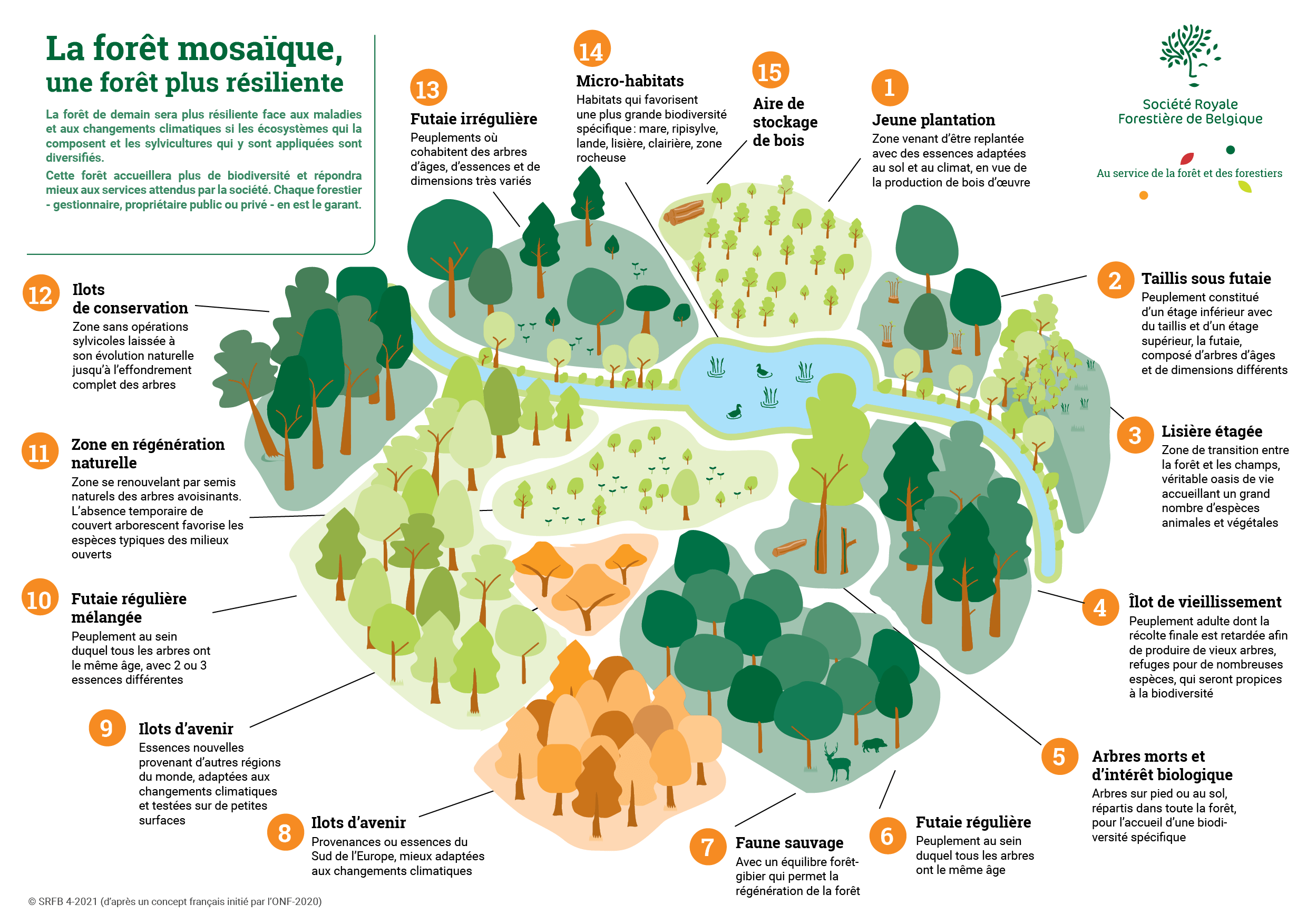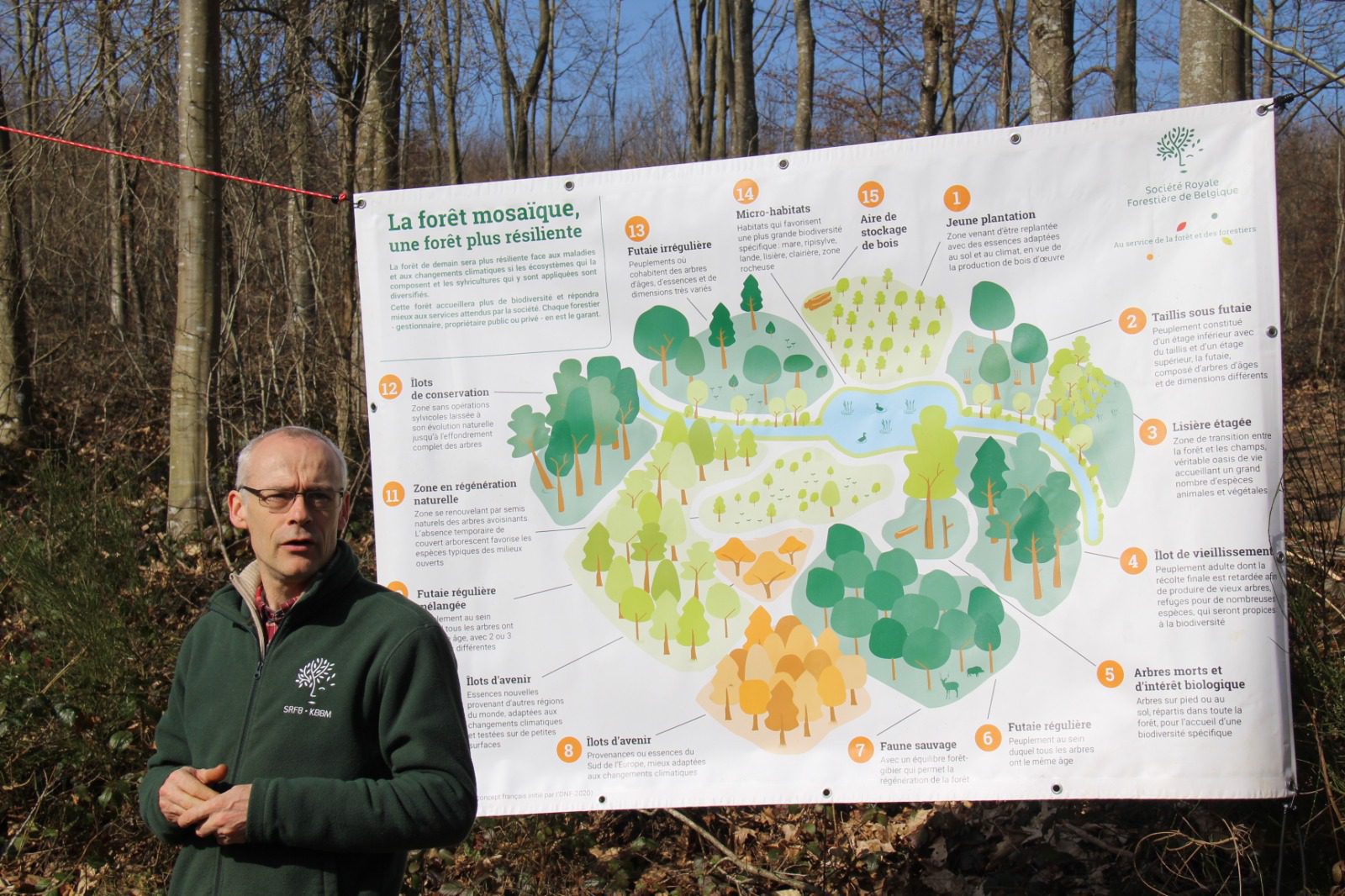Our approach to forests and forestry


THE MOSAIC FOREST
With the changing view of the forest, both by the public and by foresters themselves, its production function is no longer necessarily dominant in everyone's minds. Its social and environmental functions have also acquired essential status. We could also talk here of ecosystem services (carbon storage, water filtration, timber production...).
The setbacks experienced by our forests have brought to the forefront the need to increase their resilience.
These concepts are interdependent and form part of an overall perception of forest management that integrates and goes beyond the species-station relationship.
The mosaic forest is a forest diversified in all its components, in terms of species, silvicultural practices, genetics and micro-habitats. This forest development model was popularised by the Office national des forêts (ONF, France) in the context of adapting forests to climate change. The Royal Forestry Society of Belgium fully endorses this concept of the forest and intends to promote it among its members.
The mosaic forest model does not exclude any type of silviculture, nor does it glorify any of them. Its virtue lies precisely in the coexistence of several silvicultures and several habitat types. In addition to the undeniable landscape interest of this forest model, the coexistence of different species, silvicultures and micro-habitats maximises biodiversity and its benefits (for example, the presence of natural predators of pests) while limiting the risks of a generalised crisis (if one stand type encounters problems, the other stand types present are spared). Following the good old principle of "you can't put all your eggs in one basket", the mosaic forest extends the current advice of diversification to a larger scale.
We'll be coming back to the mosaic forest concept and its various aspects in more detail in 2021-2022, in particular in our magazine Silva Belgica.
During the International Day of Forests on 21 March 2022, we were delighted to present the concept of the mosaic forest. (Read the article recap of the event)

